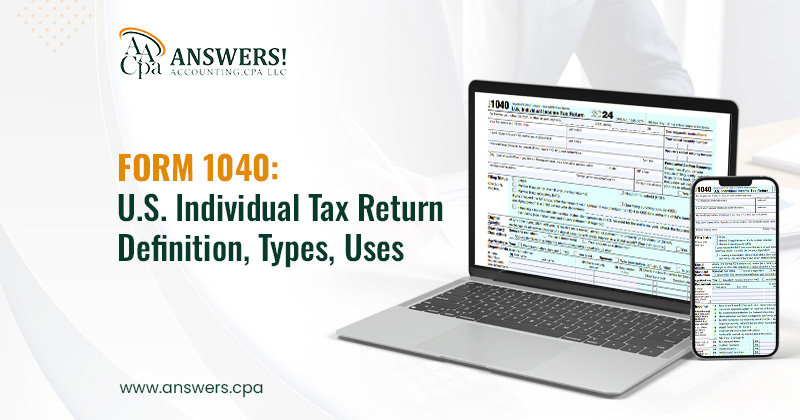CPA vs. Financial Advisor: Who Should You Choose?
Navigating complex personal and business finances often requires the expertise of a Financial Advisor or a Certified Public Accountant (CPA). While both professionals contribute to financial health and growth, their services, skills, and focus differ significantly. Understanding these distinctions is crucial for making an informed decision about which professional best suits your specific needs.
What is a CPA?
CPA usually offer accounting services, and tax preparation services. They are experts in financial analysis. A certified public accountant is a financial professional who has gained a CPA license through fulfilling requirements for education, experience, and examination. Often, they render such services as estate planning, tax planning, and audit services.
Key Services Provided by CPA:
• Tax Preparation: CPA professionals help individuals and businesses file accurate tax returns, ensuring compliance with IRS rules.
• Audit Services: CPAs conduct audits to verify the accuracy of financial statements and ensure compliance with GAAP and other regulations.
• Estate Planning: CPA professionals assist clients in planning their estate distribution to minimize taxes and ensure their wishes are fulfilled.
• Financial analysis involves CPA scrutinizing financial data to guide businesses towards informed decisions and increased profitability.
What is a Financial Advisor?
Financial Advisors help individuals manage their finances, investments, and plan for long-term financial goals. They offer a wide range of services, including investment management, retirement planning, and wealth management. Financial Advisors may hold certifications like CFA, CFP, or specific licenses, such as Series 7 or Series 65.
Key Services Provided by Financial Advisors:
- • Investment Management: Financial Advisors create and manage investment portfolios to help clients achieve their financial goals.
- • Retirement Planning: Advisors develop strategies to ensure clients can enjoy a financially secure retirement.
- • Wealth Management: This service involves a holistic approach to managing an individual's entire financial life, including investments, taxes, and estate planning.
- • Tax-Efficient Investing: Financial Advisors employ strategies to minimize tax liabilities on investments.
Comparing CPA and Financial Advisor Services
While there is some overlap in the services provided by CPAs and Financial Advisors, their primary focus areas and expertise differ.
Focus Areas:
- CPA: Primarily focuses on tax compliance, accounting services, and ensuring financial accuracy and regulatory compliance.
- Financial Advisors: Focus on investment strategies, financial planning, and helping clients grow and manage their wealth.
Professional Qualifications:
- CPA: Must pass the CPA exam, meet state-specific education and experience requirements, and adhere to continuing education standards.
- Financial Advisors: May hold certifications like CFP or CFA and must pass relevant licensing exams such as Series 7 or Series 65.
Choosing Between a CPA and a Financial Advisor
The decision to hire a CPA or a Financial Advisor depends on your specific financial needs. Here are some factors to consider:
When to Hire a CPA:
- Tax Preparation and Planning: If you need help with tax returns or complex tax planning, a CPA is the right choice.
- Audit Services: For businesses requiring audits for regulatory compliance or internal reviews, CPA expertise is essential.
- Estate Planning: A CPA can provide valuable advice on structuring your estate to minimize taxes and ensure your wishes are met.
When to Hire a Financial Advisor:
- Investment Management: If you need professional guidance on managing your investment portfolio, a Financial Advisor can help.
- Retirement Planning: Advisors can develop a comprehensive retirement plan tailored to your goals and risk tolerance.
- Holistic Financial Planning: For an integrated approach to managing your wealth, including investments, taxes, and estate planning, a Financial Advisor offers the necessary expertise.
Read This- CPA Costs for Tax Preparation
The Role of Technology in Financial Services
Both CPA and Financial Advisors are increasingly leveraging technology to enhance their services and provide more value to clients.
For CPA:
- Tax Software: Tools like Turbo tax and H&R Block streamline the tax preparation process, making it easier for the CPA to manage client returns.
- Accounting Software: Programs such as QuickBooks and Xero help CPA maintain accurate financial records and provide real-time financial analysis.
For Financial Advisors:
- Investment Platforms: Platforms like Betterment and Wealth front offer automated investment management, allowing advisors to focus on personalized client service.
- Financial Planning Software: Tools like eMoney Advisor and MoneyGuidePro enable advisors to create detailed financial plans and track client progress towards their goals.
Regulations and Standards
Both CPA and Financial Advisors must adhere to strict regulatory standards to ensure they provide ethical and professional services.
For CPAs:
- State Accountancy Boards: These boards set the standards for CPA licensure and ensure compliance with state regulations.
- AICPA: The American Institute of CPAs provides guidelines for ethical conduct and professional standards.
For Financial Advisors:
- SEC Regulations: The Securities and Exchange Commission regulates financial advisors to protect investors and maintain fair markets.
- FINRA Rules: The Financial Industry Regulatory Authority oversees the conduct of brokerage firms and their registered representatives.
Client Relationships and Trust
Building and maintaining trust is crucial for both CPA and Financial Advisors. Both professionals must prioritize client interests and provide transparent, reliable advice.
Trust Building Strategies:
- Personalized Advice: Offering tailored solutions that meet individual client needs helps build long-term relationships.
- Confidentiality: Maintaining strict confidentiality ensures clients feel secure sharing sensitive financial information.
- Client Education: Educating clients about financial concepts and strategies empowers them to make informed decisions.
Market Trends and Future Outlook
The financial services industry is continuously evolving, influenced by market trends, technological advancements, and regulatory changes.
Emerging Trends:
- Robo-Advisors: Automated investment platforms are becoming increasingly popular, offering low-cost, accessible financial advice.
- Blockchain Technology: The adoption of blockchain in accounting and finance is improving transparency and security.
- AI in Financial Planning: Artificial intelligence is enhancing financial planning tools, providing more accurate and personalized advice.
Read This- 7 Signs Indicating Your Business Needs Bookkeeping Services
Conclusion
Choosing between a CPA and a Financial Advisor depends on your specific financial needs and goals. CPA excel in tax preparation, accounting, and regulatory compliance, while Financial Advisors focus on investment management, retirement planning, and holistic wealth management. By understanding the unique strengths and services of each profession, you can make an informed decision that best supports your financial well-being.








